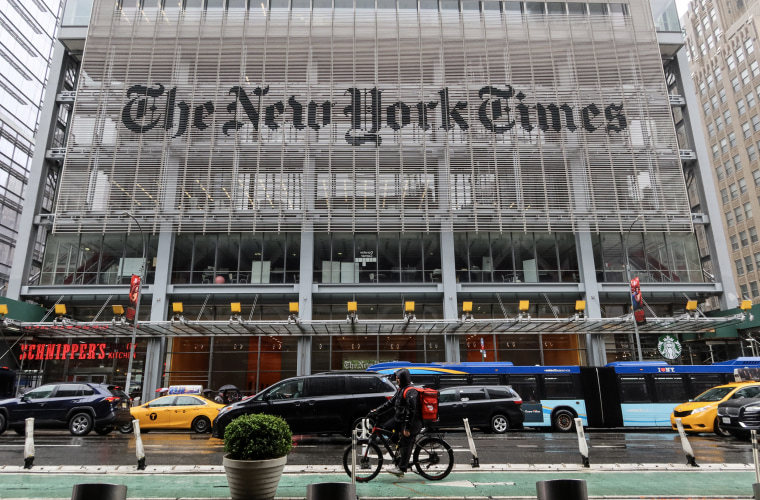The New York Times on Wednesday filed a lawsuit against Microsoft and OpenAI, the company behind popular AI chatbot ChatGPT, accusing the pair of infringing copyright and abusing the newspaper’s intellectual property.
The NYT said in a filing with the U.S. District Court for the Southern District of New York that it seeks to hold Microsoft and OpenAI to account for the “billions of dollars in statutory and actual damages” it believes it is owed for the “unlawful copying and use of The Times’s uniquely valuable works.”
In its lawsuit, the Times accused Microsoft and OpenAI of creating a business model based on “mass copyright infringement,” stating that the companies’ AI systems were “used to create multiple reproductions of The Times’s intellectual property for the purpose of creating the GPT models that exploit and, in many cases, retain large portions of the copyrightable expression contained in those works.”
CNBC has reached out to Microsoft and OpenAI for comment.
The Times said in an emailed statement that it “recognizes the power and potential of GenAI for the public and for journalism,” but added that journalistic material should be used for commercial gain with permission from the original source.

“These tools were built with and continue to use independent journalism and content that is only available because we and our peers reported, edited, and fact-checked it at high cost and with considerable expertise,” the Times said.
“Settled copyright law protects our journalism and content. If Microsoft and OpenAI want to use our work for commercial purposes, the law requires that they first obtain our permission. They have not done so.”
The New York Times is represented in the proceedings by Susman Godfrey, the litigation firm that represented Dominion Voting Systems in its defamation suit against Fox News that culminated in a $787.5 million settlement.
Other suits
Susman Godfrey is also representing author Julian Sancton and other writers in a separate lawsuit against OpenAI and Microsoft that accuses the companies of using copyrighted materials without permission to train several versions of ChatGPT.
The NYT is one of numerous media organizations pursuing compensation from companies behind some of the most advanced general artificial intelligence models, for the alleged usage of their content to train AI programs.
OpenAI is the creator of GPT, a large language model that can produce humanlike content in response to user prompts. It does this thanks to billions of parameters’ worth of data, which is obtained from public web data up until 2021.
This has created a dilemma for media publishers and creators, which are finding their own content being used and reimagined by generative AI models like ChatGPT, Dall-E, Midjourney, and Stable Diffusion. In numerous cases, the content produced by these programs can look similar to the source material.
OpenAI has tried to allay news publishers concerns. In December, the company announced a partnership with Axel Springer — the parent company of Business Insider, Politico, and European outlets Bild and Welt — which would license its content to OpenAI in return for a fee.
The financial terms of the deal weren’t disclosed.
In its lawsuit Wednesday, the Times accused Microsoft and OpenAI of creating a business model based on “mass copyright infringement,” stating that the companies’ AI systems were “used to create multiple reproductions of The Times’s intellectual property for the purpose of creating the GPT models that exploit and, in many cases, retain large portions of the copyrightable expression contained in those works.”